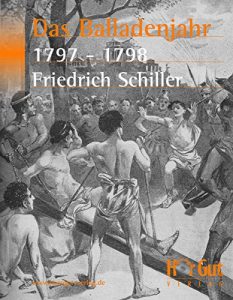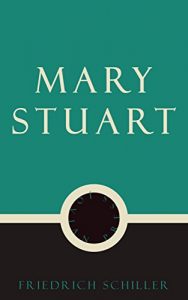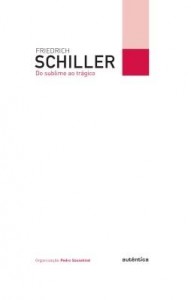Kabale und Liebe (Intrigue and Love) [German English Bilingual Edition]
by Friedrich Schiller
Kabale und Liebe (Intrigue and Love), is a five act tragedy written in 1784. It was Schiller's third play and shows political intrigues destroy the love between Ferdinand von Walter, a nobleman's son, and Luisa Miller, daughter of a musician. The dominant motif is the conflict between the middle-classes and the nobility in middle-class pride and aristocratic snobbery, with universal humanity at its center, charged with open political grievances. For characters, interests, subjective feelings and the demand for freedom from a class-ridden society's constraints are powerful drivers.
Intrigue and Love belongs to the era of Sturm und Drang and is categorized as a bourgeois tragedy, a genre attributable to Gotthold Ephraim Lessing. Tragedy had previously been limited to the nobility but Lessing's genre also opened it to the world of the German middle classes.
Giuseppe Verdi's opera Luisa Miller was based on this play.
About the Author
Friedrich von Schiller (10 November 1759 – 9 May 1805) was a German poet, philosopher, historian, and playwright. He wrote on esthetics and ethics, elaborating on the concept of the good, the beautiful, and the sublime. He was also particularly interested in the concept of human freedom.
In 1799, after he moved to Weimar from Jena, Johann Wolfgang von Goethe Goethe persuaded him to switch back to playwriting, and they founded the Weimar Theater. It became the leading theater in Germany. Their relationship and their frequent discussions on aesthetics is referred to as Weimar Classicism.
Schiller is considered by most Germans the most prominent classical German playwright. His dramas include The Robbers (Die Räuber), Fiesco (Die Verschwörung des Fiesco zu Genua), Don Carlos, The Wallenstein Trilogy, Mary Stuart (Maria Stuart), The Maid of Orleans (Die Jungfrau von Orleans), The Bride of Messina (Die Braut von Messina) and William Tell (Wilhelm Tell).
He died of tuberculosis 1805, at the age of 45.
About the Bilingual Edition
The paragraph-by-paragraph translation series is a continuing project making available great original German writers' texts along with their English translation.We believe that this edition, which offers after every original language paragraph its translation, makes both grammar and vocabulary checks as painless as possible. Idiomatic forms that could be overlooked can be easily detected. Furthermore, large paragraphs have been broken down to much smaller units so that the check is as effortless as possible. We do hope that by reading German writers that defined the language itself or whose work permeated the German culture, you will be able to get the maximum benefit from this language series. This edition is a very powerful tool to speed up the process once you have attained the intermediate level and beyond.
by Friedrich Schiller
Kabale und Liebe (Intrigue and Love), is a five act tragedy written in 1784. It was Schiller's third play and shows political intrigues destroy the love between Ferdinand von Walter, a nobleman's son, and Luisa Miller, daughter of a musician. The dominant motif is the conflict between the middle-classes and the nobility in middle-class pride and aristocratic snobbery, with universal humanity at its center, charged with open political grievances. For characters, interests, subjective feelings and the demand for freedom from a class-ridden society's constraints are powerful drivers.
Intrigue and Love belongs to the era of Sturm und Drang and is categorized as a bourgeois tragedy, a genre attributable to Gotthold Ephraim Lessing. Tragedy had previously been limited to the nobility but Lessing's genre also opened it to the world of the German middle classes.
Giuseppe Verdi's opera Luisa Miller was based on this play.
About the Author
Friedrich von Schiller (10 November 1759 – 9 May 1805) was a German poet, philosopher, historian, and playwright. He wrote on esthetics and ethics, elaborating on the concept of the good, the beautiful, and the sublime. He was also particularly interested in the concept of human freedom.
In 1799, after he moved to Weimar from Jena, Johann Wolfgang von Goethe Goethe persuaded him to switch back to playwriting, and they founded the Weimar Theater. It became the leading theater in Germany. Their relationship and their frequent discussions on aesthetics is referred to as Weimar Classicism.
Schiller is considered by most Germans the most prominent classical German playwright. His dramas include The Robbers (Die Räuber), Fiesco (Die Verschwörung des Fiesco zu Genua), Don Carlos, The Wallenstein Trilogy, Mary Stuart (Maria Stuart), The Maid of Orleans (Die Jungfrau von Orleans), The Bride of Messina (Die Braut von Messina) and William Tell (Wilhelm Tell).
He died of tuberculosis 1805, at the age of 45.
About the Bilingual Edition
The paragraph-by-paragraph translation series is a continuing project making available great original German writers' texts along with their English translation.We believe that this edition, which offers after every original language paragraph its translation, makes both grammar and vocabulary checks as painless as possible. Idiomatic forms that could be overlooked can be easily detected. Furthermore, large paragraphs have been broken down to much smaller units so that the check is as effortless as possible. We do hope that by reading German writers that defined the language itself or whose work permeated the German culture, you will be able to get the maximum benefit from this language series. This edition is a very powerful tool to speed up the process once you have attained the intermediate level and beyond.
![Baixar Kabale und Liebe (Intrigue and Love) [German English Bilingual Edition] – Paragraph by Paragraph Translation (German Edition) pdf, epub, eBook](https://br.99ebooks.net/wp-content/uploads/2017/05/51N2vwu3tdL-188x300.jpg)











